For the last year, the Iowa Chapter of the Sierra Club has been working on the carbon dioxide pipelines that are proposed to crisscross the state. We have assembled an unlikely coalition of environmentalists, farmers, landowners, young, old, conservatives, and liberals. And we have crossed political divides. In these times of political strife, it has brought us great joy in seeing the diverse group of people all working together in fighting the pipelines. It has been quite a journey, one that is not even close to the end. But along the way, we have built some wonderful friendships and a great appreciation for each other. Thanks to all of you who are participating in the coalition, attending meetings and rallies, writing letters to the editors, contacting elected officials, posting objections with the Iowa Utilities Board, advocating to your neighbors, friends, and relatives, supporting us, and cheering us on. We appreciate your work!
Take care,
Pam Mackey Taylor, Chapter Director and Newsletter Editor
What you can do to help the environment
- Watch "Johnson County Supervisor Jon Green on carbon pipeline opposition!
- Put our annual meeting on your calendar - October 1, Waterloo, 10:30 to 4:00, "Celebrating 50 years of the Clean Water Act"
- Donate to the Iowa Chapter of the Sierra Club so that we can continue this work.
In this issue of the Iowa Sierran
Carbon Dioxide Pipelines

-
Wolf carbon dioxide pipeline meetings in August and September
-
Navigator carbon dioxide pipeline meetings in August and September
Water Quality and Agriculture
-
Iowa’s Beaches – Fun or Health Risk?
-
Annual meeting - October 1 - "Celebrating 50 years of the Clean Water Act"
-
Iowa Supreme Court fails to protect neighbors of factory farms
Wildlife and Wildlands
Events
-
Join us for interesting and informative webinars and Lunch and Learns
Plus
-
Contribute to the Iowa Chapter
-
Volunteer for the Iowa Chapter
-
Calendar of events
-
To see the archive of previous Iowa Chapter newsletters
-
To see the White Pine Needle newsletter
Update on Carbon Dioxide Pipelines
News about Carbon Dioxide Pipelines
Iowa has become the target for three carbon dioxide pipelines. Two of those companies - Navigator Heartland Greenway and Wolf Carbon Solutions - will be holding public meetings in August and September. The schedules follow this article. The third company is Summit Carbon Solutions.
Recently the Iowa Chapter of the Sierra Club hosted a livestream program with Johnson County Supervisor Jon Green who laid out why county supervisors are concerned about the carbon dioxide pipelines. See "Johnson County Supervisor Jon Green on carbon pipeline opposition!"
These pipelines are centered around Carbon Capture and Storage (CCS). They would carry captured carbon dioxide (CO2) from ethanol plants and fertilizer plants. CCS is very complicated but when you boil it down, the basic premise is that it captures the carbon dioxide and stores it underground (CCS) or it captures the carbon dioxide and uses it for industrial purposes. They can also use the CO2 for Enhanced Oil Recovery (EOR). EOR is the process of pumping CO2 into dwindling oil fields to get the last bit of oil out of the ground. The pipelines are being offered as a false climate solution, especially if it will be utilized for enhanced oil recovery and extending the life of coal-fired power plants and the ethanol industry.
We already know the solutions to our climate crisis - we must end our dependence on fossil fuels and invest in solar, wind, battery storage, conservation and efficiency!
CCS is a false solution in this instance because:
- It does not address other emissions or forms of pollution from fossil fuel extraction and industrial agriculture
- It will allow for the extension of fossil fuel extraction through enhanced oil recovery
- Fails to acknowledge CO2 is incredibly dangerous and a pipeline leak or break could poison surrounding communities and first responders
- It will extend the life of the polluting ethanol industry and industrial agriculture practices that have contributed to our climate crisis, water pollution and more.
- CCS continues business as usual and delays investment in REAL climate solutions
CCS is a false solution that takes us farther away from our climate goals. The pipeline continues business as usual, will only be feasible with massive public subsidies, and should not be approved. Let’s invest in REAL climate solutions.
We want real climate solutions - not greenwashing schemes!
Wolf carbon dioxide pipeline meetings in August and September
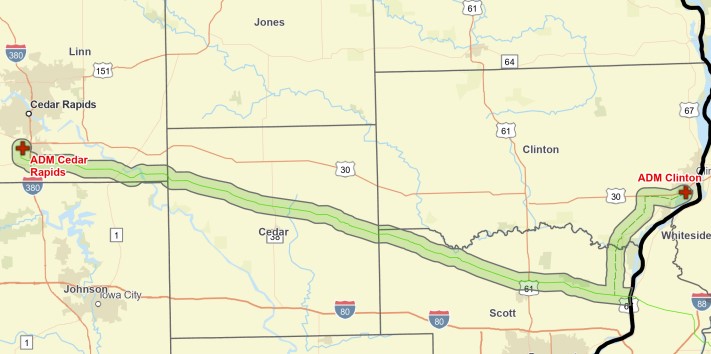 Along the way, the pipeline will cross 5 Iowa counties – Linn, Johnson, Cedar, Clinton, and Scott. The next step for this project is for the company and the Iowa Utilities Board to host public meetings in each county. The schedule is:
Along the way, the pipeline will cross 5 Iowa counties – Linn, Johnson, Cedar, Clinton, and Scott. The next step for this project is for the company and the Iowa Utilities Board to host public meetings in each county. The schedule is:|
County |
Date |
Time |
Location |
|
Johnson |
Aug |
12:00 |
North Liberty Community Center, 520 Cherry St., North Liberty, Iowa |
|
Cedar |
Aug |
6:00 |
Tipton High School Auditorium, 400 E. Sixth St., Tipton, Iowa |
|
Linn |
Aug |
12:00 |
Veterans Memorial Building, 50 Second Ave. Bridge, Cedar Rapids, Iowa |
|
Clinton |
Aug |
6:00 |
Wild Rose Convention Center, 777 Wild Rose Drive, Clinton, Iowa |
|
Scott |
Aug |
12:00 |
River Center (Adler Theater), 136 E. Third St., Davenport, Iowa |
|
Virtual |
Sept |
6:00 |
Participation through IUB WebEx system |
Navigator carbon dioxide pipeline meetings in August and September
The Navigator pipeline project connects ethanol and fertilizer plants in Iowa to a pipeline that leads to Illinois where the carbon dioxide (CO2) will be stored underground.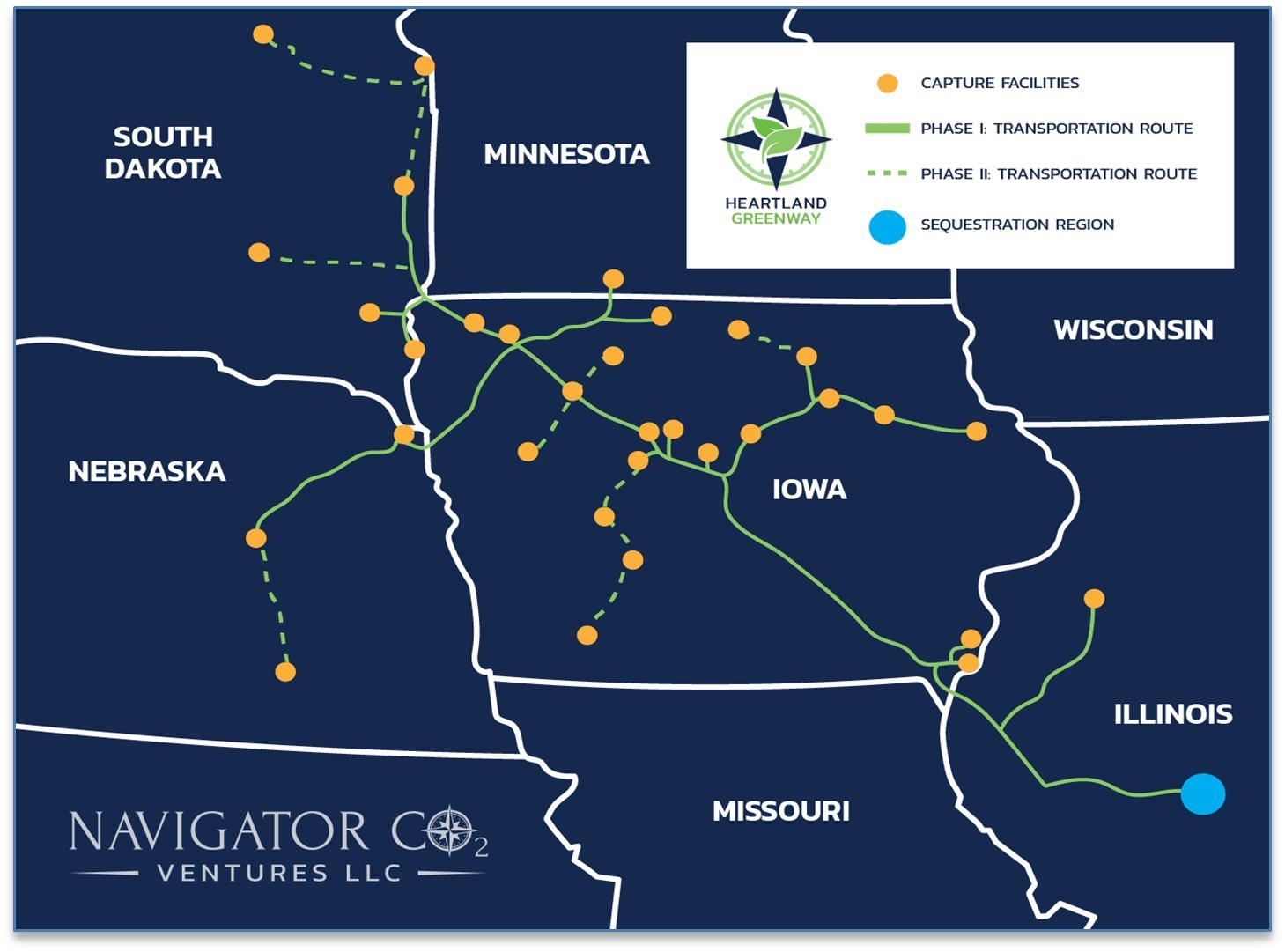 See a map of the counties that will be crossed by the project.
See a map of the counties that will be crossed by the project.
Navigator is planning to conduct a series of meetings involving the landowners and the Iowa Utilities Board beginning in August and running through September. Navigator recently announced that it was changing its route in Iowa and would also be building the pipeline in two phases. As a result, Navigator is required to hold a number of additional public meetings. The schedule is:
|
County |
Date |
Time |
Location |
|
Delaware |
Aug |
12:00 |
The Gathering Place, 1711 N 2nd St, |
|
Buchanan |
Aug |
6:00 |
Heartland Acres Agribition Center, 2600 |
|
Fayette |
Aug |
12:00 |
The Coliseum, 101 1st St SW, |
|
Bremer |
Aug |
6:00 |
The Centre Hall, 1211 4th St SW, |
|
Butler |
Aug |
12:00 |
Greene Community Center, |
|
Hardin |
Aug |
6:00 |
ECC Agricultural Renewable Energy |
|
Hamilton |
Aug |
12:00 |
Briggs Woods Conf. Center, |
|
Webster |
Aug |
6:00 |
Webster County Fairgrounds, Auditorium |
|
Weather Reschedule |
Aug |
TBD |
TBD |
|
Polk |
Sept 21 |
12:00 |
TBD |
|
Virtual |
Sept 21 |
6:00 |
Participation through IUB WebEx system |
|
Lyon |
Sept |
12:00 |
Forster Community Center, 404 1st Ave, |
|
Osceola |
Sept |
6:00 |
9th Street Centre, 418 9th St, |
|
Lee |
Sept |
12:00 |
Lee County Fairgrounds, Youth Learning |
Iowa’s Beaches – Fun or Health Risk?
Iowa is home to some wonderful beaches. Unfortunately, during the summer those beaches can become contaminated with E coli and microcystin toxins.
The Iowa Department of Natural Resources (DNR) tests the water near 40 beaches to make sure that swimmers are protected from water-borne illnesses. The tests are conducted during swim season which runs from Memorial Day through Labor Day. The DNR issues swim advisories – swimming is not recommended – if testing shows high levels of indicator bacteria or microcystin toxins. The advisory stays in effect until tests show levels below the advisory threshold.
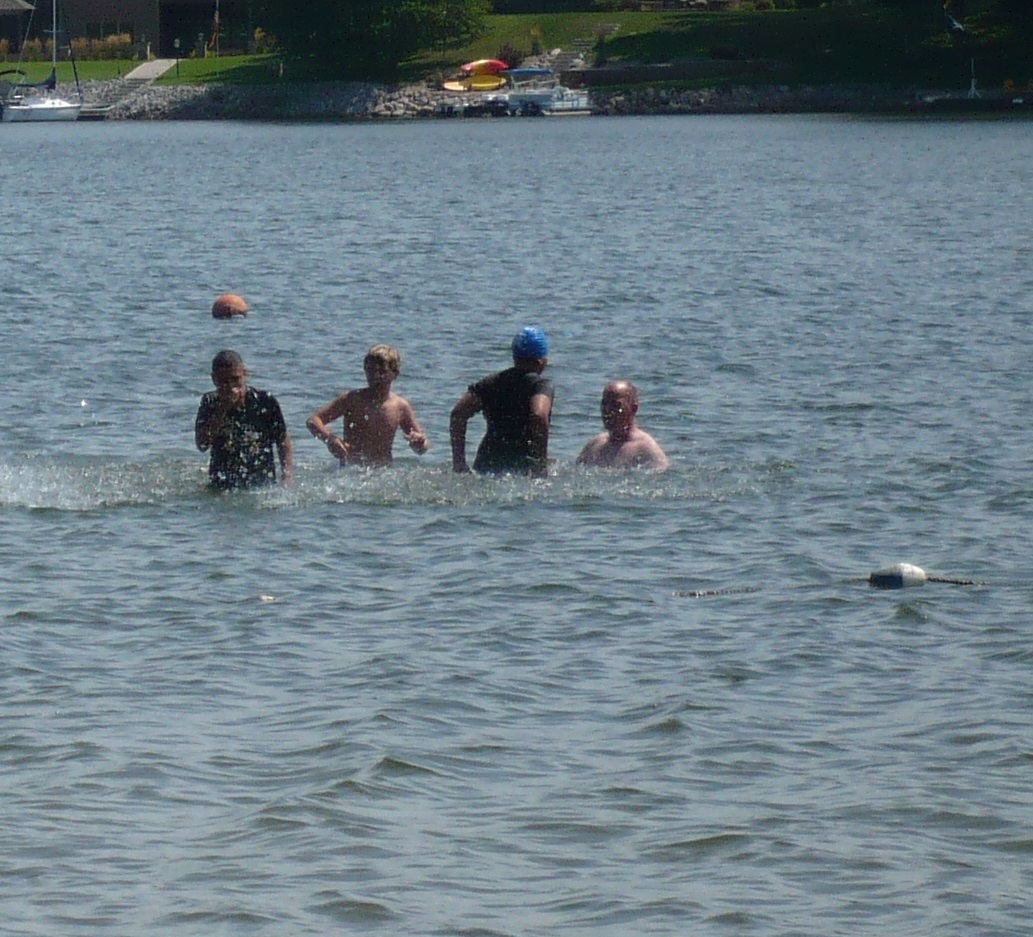
To see the beaches with swim advisories – where swimming is not recommended, see the DNR website at www.iowadnr.gov/things-to-do/beach-monitoring The information is updated every Friday. You can also call the Beach Monitoring Hotline – 515- 725-3434.
The Army Corps of Engineers monitors reservoirs. You can check on their status by calling
- Saylorville Lake - 515-276-4656
- Lake Red Rock - 641-828-7522
- Coralville Lake - 319-338-3543
How does the water get contaminated?
The cycle starts when the water is contaminated with nitrogen and phosphorus; 92 % of the nitrogen and 80% of the phosphorus comes from non-point agricultural sources.
The DNR tests for Indicator bacteria – E. coli. High levels indicate that fecal matter is in the water and other pathogens may be present. Fecal matter can come from sewage treatment plants; septic tanks; wildlife, pet, or livestock manure; and baby diapers. But let’s be realistic, Iowa has over 26 million hogs, which is likely the source of a lot of the pollution. Surface water after a rainfall may carry fecal material and sediment to the lake. Sunlight destroys the E. coli bacteria.
Cyanobacteria – also called blue-green algae – can produce toxins called microcystins. High levels of nitrogen and phosphorus, from commercial fertilizer or fecal matter, encourage the growth of blue-green algae. The algae create blooms that can then create the toxin. Microcystin can be carried in water droplets.
Water testing is the key to detection. Unfortunately you cannot look at the water and tell if it has high levels of indicator bacteria or microcystin toxins. Often the water is smelly, but not always. Green mats on the water indicate the presence of algae, but that alone does not indicate the presence of microcystin.
Illnesses from exposure to contaminated water include:
- Gastrointestinal symptoms and diarrhea. You can get diarrhea by accidentally swallowing small amounts of contaminated water
- Skin infections and rashes
- Ear, nose, and throat symptoms, such as runny eyes and a sore throat
- Respiratory infections. Microcystin toxins can cause asthma-like symptoms
- Microcystin exposure can result in liver damage
The people most susceptible are children, elderly, and individuals with weakened immune systems.
Why is this happening?
In spite of voluntary efforts in reducing nutrients, a significant quantity of nitrogen and phosphorus runs off farm fields and into Iowa’s lakes, rivers, and streams. The nitrogen and phosphorus comes from factory farm manure and over-application of commercial fertilizer. High levels of nutrients encourage the growth of bacteria and pathogens, which render our beaches unusable. Swim advisories will continue until nutrient levels are significantly reduced in Iowa’s water bodies. That is why Sierra Club is advocating for numerical standards for nitrogen and phosphorus for Iowa’s lakes, rivers, and streams, including a reasonable date for each water body to meet the standards.
What you can do
Write to the Department of Natural Resources and ask them to initiate rules to set numerical standards for N & P for Iowa’s lakes, rivers, and streams, including a reasonable date for each water body to meet the standards
Kayla Lyon, Director, Iowa Department of Natural Resources, 502 East 9th Street, 4th Floor, Des Moines, IA 50319-0034
It is time for our state senators and state representatives to enact a moratorium on building new or expanding existing animal feeding operations (factory farms).
For a list of Iowa’s beaches, www.traveliowa.com/getinspireddetails/iowa-s-beaches/23/
Annual meeting - October 1 - "Celebrating 50 years of the Clean Water Act"
The Iowa Chapter of the Sierra Club will be "Celebrating 50 years of the Clean Water Act" at the annual meeting on October 1. This year we will be gathering at the Waterloo Center for the Arts in Waterloo, Iowa. Doors open at 10:30. We will have a key note speaker, followed by a great meal and a panel discussion. We will be learning about the good, the bad, and the hopes for the future of Iowa's waters.
We hope you can join us on October 1, from 10:30 to 4:00. The cost is $30 per person.
Iowa Supreme Court fails to protect neighbors of factory farms
The Iowa Supreme Court recently overturned eighteen years of established precedent, making it harder now for rural residents to sue large livestock operations for creating a nuisance, such as odor, flies, or noise. It is important for Iowans to know how this happened and how we can respond.
The right to sue to stop a nuisance or for damages caused by a nuisance has long been enshrined in the law, even early English common law. Iowa law was no exception until the Iowa Legislature passed a law restricting the right to sue for a nuisance against livestock operations. The legislature said the livestock industry was so important that the rights of nearby residents didn’t matter, even if those residents were there first.
But in 2004, in a case called Gacke v. Pork Xtra, the Iowa Supreme Court said the law restricting nuisance suits was unconstitutional if the neighbor affected could show that there was indeed a nuisance, that the neighbor was there before the livestock operation, and that the neighbor received no comparable benefit from the nuisance immunity law.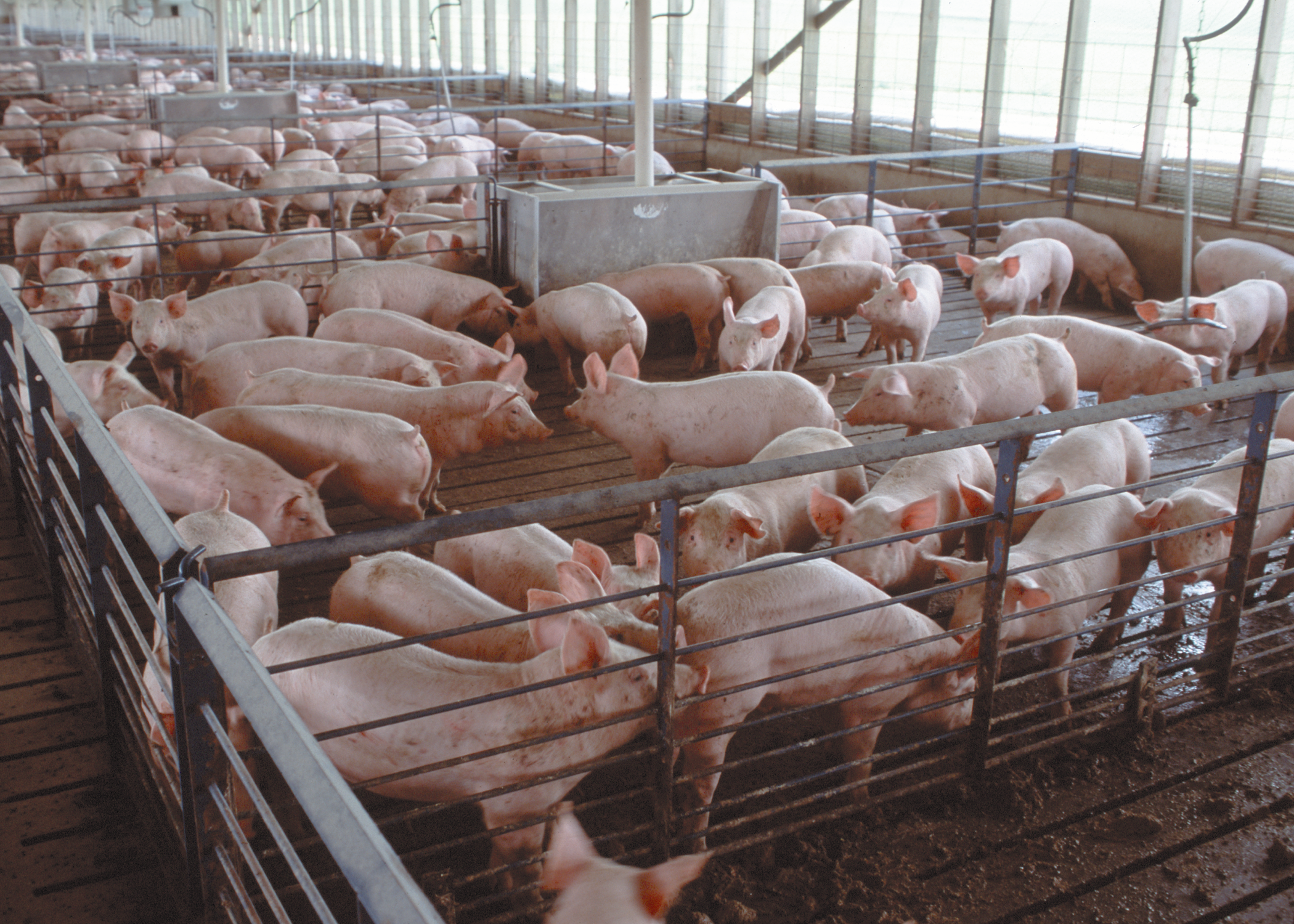
Over the next eighteen years the Gacke decision was expressly reaffirmed in another livestock nuisance case and was relied on as precedent in constitutional challenges to other laws. The Gacke decision was seen as creating a reasonable balance between the legislature’s intent and the rights of neighbors suing for nuisance. Then Gordon Garrison from Emmet County sued a hog confinement operation for nuisance, relying on the Gacke decision. The only issue at the district court level was whether Mr. Garrison had received any comparable benefit from the immunity law. But when the case went to the Iowa Supreme Court, four of the seven justices voted to overturn the Gacke decision and found the immunity law to be constitutional. The only circumstance that had changed since the Gacke decision was the membership on the court. Governor Reynolds had appointed four new members to the court.
In a dissenting opinion in the Garrison case, Justice Brent Appel emphasized Article I, Section 1 of the Iowa Constitution, which says, “All men and women are, by nature, free and equal, and have certain inalienable rights – among which are those of enjoying and defending life and liberty, acquiring, possessing and protecting property, and pursuing and obtaining safety and happiness.” The Iowa immunity law denied Mr. Garrison that right. Justice Appel went on to say that the purpose of the constitutional right is to ensure that individual liberties are not subject to erosion by an aggressive legislative or executive branch. He went on to say that the people who wrote the Iowa Constitution were well aware of the capability of special interests (like the Farm Bureau and livestock producers) to dominate the halls of government. Justice Appel concluded by saying that the legislature is telling existing property owners that they must “contribute” to the private good of the owners of a hog operation and “take one for the team.”
In another dissenting opinion Justice Christopher McDonald emphasized that Iowa is the only state that has a statute immunizing livestock operations to the extent the Iowa law does. He described the Iowa law as “an extreme deprivation of rights not even attempted in other jurisdictions.” He concluded by saying that “when the legislature exercises its police powers to allow one person to profit by damaging, degrading, and destroying the property and property rights of another, the legislature has exceeded its constitutional authority."
What this all means is that we must elect legislators who will change the law to protect people, rather than the livestock industry. The legislature is the cause of this problem and it can also be the cure if we elect good people.
Photo of hog confinement, taken by Bob Nichols, USDA NRCS
Thinking about light and noise pollution
By Pam Mackey Taylor, Director, Iowa Chapter of the Sierra Club
Those of us who live in cities often don’t think about the night sky and how light it is. Nor do we think about the noise that is generated by our daily lives – from transportation to factories to the hubbub created by human activity. But the light and noise can have huge impacts on plants, insects, and other animals.
Two articles recently caught my attention – both dealing with artificial lighting and its effect on the natural world. One was the cover article in The Atlantic, titled “Our Blinding, Blaring World” by Ed Yong in the July/August 2022 magazine. The other was from the National Academy of Sciences, PNAS Nexus, titled “Artificial light at night: an underappreciated effect on phenology of deciduous woody plants” by Lin Meng, et al, published in May 2022.
To quote Ed Yong, “dark is disappearing” and “so is true silence”. And that can be devastating to migrating birds who are confused and disoriented by the light. It can be devastating to insects that are attracted to the light source. Light reflecting off wet pavement may appear like a water body confusing other animals. Noise can travel long distances and can drown out natural noise, affecting all kinds of animals.
Some species can adapt and can change behaviors, while others are not able to thrive. As the animal species living in an area change, so too with the plant species. Plants that depend on animals to spread their seeds or to disperse their pollen may not be able to reproduce if those animals are no longer present in an area.
Trees have a response mechanism to light. In other words, trees have their own circadian rhythm, just as humans have a circadian rhythm. The Meng study found that trees respond to artificial night lighting by leafing - the time when leaf buds open – earlier. In higher latitudes, where fall temperatures are lower, deciduous trees respond to artificial night lighting by changing colors later.
All of this leads to the conclusion that we humans need to reduce our night-time lighting and the noise we and our activities emit.
Resources
Ed Yong, “Our Blinding, Blaring World”, The Atlantic, July/August 2022, page 62, https://www.theatlantic.com/magazine/archive/2022/07/light-noise-pollution-animal-sensory-impact/638446/
Lin Meng, Yuyu Zhou, Miguel O Román, Eleanor C Stokes, Zhuosen Wang, Ghassem R Asrar, Jiafu Mao, Andrew D Richardson, Lianhong Gu, Yiming Wang, Artificial light at night: an underappreciated effect on phenology of deciduous woody plants, PNAS Nexus, Volume 1, Issue 2, May 2022, pgac046, https://doi.org/10.1093/pnasnexus/pgac046
Join us for interesting and informative webinars
Lunch and Learns
Every Friday at noon, we do a Lunch and Learn livestream. See us on Facebook at "Sierra Club Iowa Chapter". These will be recorded so you can watch them anytime. Topics will be selected based on what is happening during the week and will be announced the day before the livestream. During the legislative session, we cover issues coming before the Iowa legislature.
In case you missed our past webinars and lunch and learn sessions, you can still see them.
- See "Johnson County Supervisor Jon Green on carbon pipeline opposition!", July 15 2022
- Learn about "Bottle Bill Update", July 8, 2022
- Watch "Pipeline Update and Action Steps", July 1, 2022
- Learn about "Iowa's Greenhouse Gas Emissions", June 24, 2022
Volunteer for the Iowa Chapter
Almost everything we do is done by volunteers like you. If you would like to volunteer for the Iowa Chapter, please let us know by sending an E-mail to Iowa.chapter@sierraclub.org. Or sign up by using the online form. There are many opportunities for you to make a difference:
-
making phone calls
-
developing graphics for banners and flyers
-
working on legislative issues
-
working on elections
-
fundraising
-
organizing events
-
joining an issue committee
If you would like to join a committee on the Peoples Budget, sign up here please fill out our People's Budget Volunteer Form so we can build our organizing team for this project. A large number of Sierra Club issues require some involvement with Iowa's state budget. Budgets reflect theories of government. Iowa’s political conversation rarely moves beyond the notion that government’s primary responsibility is to grow the economy. Hence we give corporations tax breaks, but slash funding for health care, environmental protections and public interest research at our three state universities. We hold a different view of government and that is government is the trustee of all the things we share - public roads and bridges, water, wildlife, air, public universities, state parks, education and public health. Therefore, protecting, enhancing and restoring our shared public wealth is the central responsibility of government. We must tie the budget to our priorities.
If you would like to join our legislative action team, sign up here. Keep on top of what is happening at the Iowa legislature. Be alerted when you should contact your legislators about pending legislation.
Contribute to the Iowa Chapter
Sierra Club - the best bet for achieving bold solutions to Iowa’s environmental problems
Sierra Club is Iowa’s oldest and largest grassroots environmental organization. Not only that, we are the best bet in the state for achieving bold solutions to Iowa’s environmental problems.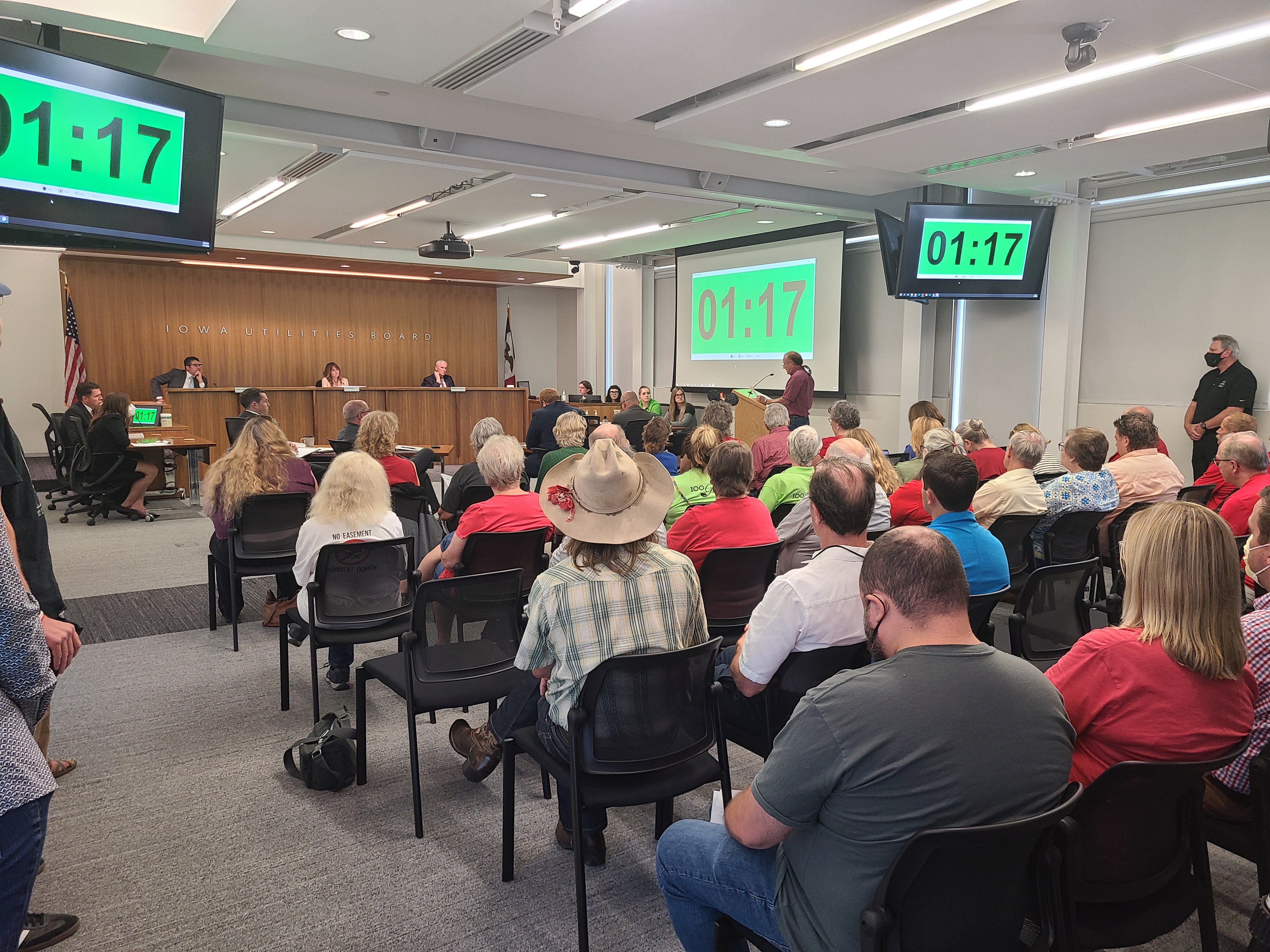
We work in the courts, before Iowa’s public agencies, and in the halls of the legislature. The Iowa Chapter's effort to protect the environment takes financial support. The Chapter receives very little financial support from the national Sierra Club. Can we count on you for a donation to ensure even more victories? Your contribution will be put to work here in Iowa on issues that affect every day Iowans – water quality, clean air, protection of Iowa's soil, parks and natural areas, and a strong democracy. The Iowa Chapter is relentless in fighting back bad legislation that affects every one of us.
Your non-deductible contributions make it possible for us to fight bad legislation and to promote good legislation. We appreciate your past and on-going support of these efforts. You can make a non-deductible donation with a credit card. A non-deductible donation supports the Chapter's effective, citizen-based advocacy and lobbying programs. If you prefer, a non-deductible check can be written to the Sierra Club Iowa Chapter and mailed to:
Treasurer
Sierra Club, Iowa Chapter
PO Box 1058
Marion, IA 52302
You can also make a tax-deductible donation with a credit card. Tax-deductible activities are limited to public interest education, research and legal actions. A deductible check can be written to the Sierra Club Foundation with “Iowa Chapter” written in the memo line.
Thank you for your support.
Donate your used vehicle
As the Sierra Club Foundation's Iowa Chapter continues to raise charitable funds to support its work in Iowa, won’t you consider participating in our vehicle donation program? Our partners over at CARS have made the process of donating your unused or unneeded car, truck, motorcycle, boat or RV easy, efficient and secure. They’ll take care of everything from picking up your vehicle to sending you a tax receipt for your generous gift. To learn more about The Sierra Club Foundation's Iowa Chapter vehicle donation program, please call 844-674-3772. Or visit our webpage to get started today!
Sierra Club Foundation promotes climate solutions, conservation, and movement building through a powerful combination of strategic philanthropy and grassroots advocacy. The Foundation is the fiscal sponsor of Sierra Club’s charitable environmental programs.
For more information
Planned giving . . . naming the Sierra Club Iowa Chapter in your will
Ensure your environmental legacy by naming the Iowa Chapter in your will or trust. These gifts cost you nothing now. You can hold onto your assets for as long as you need them.

Thank you for supporting our work!
| When | Earliest: Latest: |
| What |
|
| Word or Phrase | Word or phrase to search for: |
| Leader | All or part of leader name to search for: |
No Matching Activities Found
Loading
| Date | Activity (click title for full description) | Sponsor | Category | Type | Difficulty | Links |
|---|
Loading ...
 Outing
Outing Club support event
Club support event  Social event
Social event  Activist event
Activist event  Multiple events (map only)
Multiple events (map only)